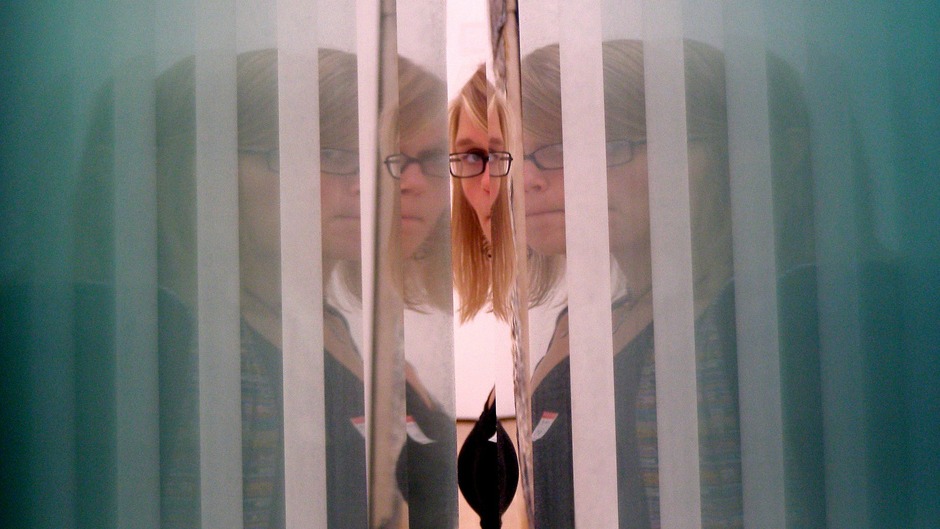Recently, a new field of psychology has spawned to address the task of examining desire. Wantology, of which Arlie Russell Hochschild makes mention in her New York Times article, "The Outsourced Life," is a field of expertise aimed at helping people discern their desires and work towards getting what they want. A wantologist helps clients verbalize their latent, unrequited desires and moves them toward achieving happiness by identifying the ways they can satisfy those desires. The goal of wantology is to help clients connect the dots of desire: what do they want and how do they get it? I suppose if we are paying people to help us in this task, we're admitting both that it's difficult and that most of us lack the skills for doing it on our own.
But wantology can't offer all the answers we as Christians need. As followers of Jesus, we're asking different questions and in need of different answers. We're asking, not just What do I want? but Is what I want right? We're interested in congruence: Is what I want what God wants for me? Am I following God's will? But this kind of reflective, prayerful examination of our heart's desires, when we're honest about it, can challenge us see the ways we've clamored to get what we've wanted and ultimately failed to trust. It's not a truth we find easy to see. It's often a truth we're rather avoid. Our dismissal of desire may be built less on our holy hesitations about desire. In fact, ignoring our desires may serve as the convenient way we remain ignorant and resist change.
* * * * *
In an early chapter of Pilgrim at Tinker Creek, Annie Dillard recounts what she learned from stories of blind patients who recovered their sight after surgeons had learned how to safely remove cataracts.
Though we might imagine that these newly sighted people felt ecstatic, in every instance, their new capacity was disorienting. In many cases, it was even terrifying. Patients struggled to make use of their new sense, and some rejected it altogether, "continuing to go over objects with their tongues," writes Dillard, "and lapsing into apathy and despair." One patient, a fifteen-year-old boy, cried, "No, really, I can't stand it any more . . . If things aren't altered, I'll tear my eyes out."
Spiritual sight gives us the frightening capacity for recognizing what we have loved and desired more than God.
In the Scriptures, one of the most prominent metaphors for spiritual conversion is recovering sight. When we come to a saving faith in Jesus Christ, we are healed of the spiritual blindness into which we were born (cf. John 9:39). This repairs our ability to see Christ as well as to see ourselves. It's this new "sight," which causes us to acknowledge both that Christ saves and that we desperately need such saving.
But like the newly sighted patients whom Dillard describes, our new sense can disorient, even terrify us. This may be owed to the theological truth that our spiritual eyes are not mere transmitters of perception. Indeed, Jesus teaches that our spiritual eyes emit light, sending up from the caverns of the self either brooding darkness or soul incandescence. "Your eye is the lamp of your body. When your eye is healthy, your whole body is full of light, but when it is bad, your body is full of darkness. Therefore be careful lest the light in you be darkness," (Matthew 6:22-23).
It is often true that, once we are made to see, we don't like what we apprehend. Spiritually seeing, we learn who we are. We recognize our heart's attachments. We see into our own heart of darkness. It should be of no surprise that when Jesus teaches about corollary health of eye and body, he does so in the context of teaching about money. "No one can serve two masters, for either he will hate the one and love the other, or he will be devoted to the one and despise the other," (v. 24). Spiritual sight gives us the frightening capacity for recognizing what we have loved and desired more than God.
Our continual challenge is embrace this capacity for spiritual sight, which isn't just the ability to see but the willingness to be seen. We must be seen by God, by others, and must even will ourselves to stand naked in front of a mirror. As we see and are seen, we will begin to wrestle with the nature of our desires, even find the courage to admit when they fall painfully short of God's glory. Like the cataract patients Annie Dillard describes, we may want to reject this new sense, not least because spiritual "sight" commits us to a posture of sustained humility: humility before the Scriptures as they, in Eugene Peterson's words, "read us," humility in our relationships, which we injure; humility in prayer to the God before whom "we are naked and exposed" (Heb. 4:13). Humility is one of the hardest habits to wear—which may be why talking about desire is sometimes the last thing we want to do. But we must: see the truth, own the truth, tell the truth, receive the truth, live in the truth—about who we are and about what we want.
Jen Pollock Michel is the author of Teach Us To Want: Longing, Ambition, and the Life of Faith (InterVarsity Press, July 2014). This article has been adapted from its second chapter, "Aperture of the Heart: Courage."









